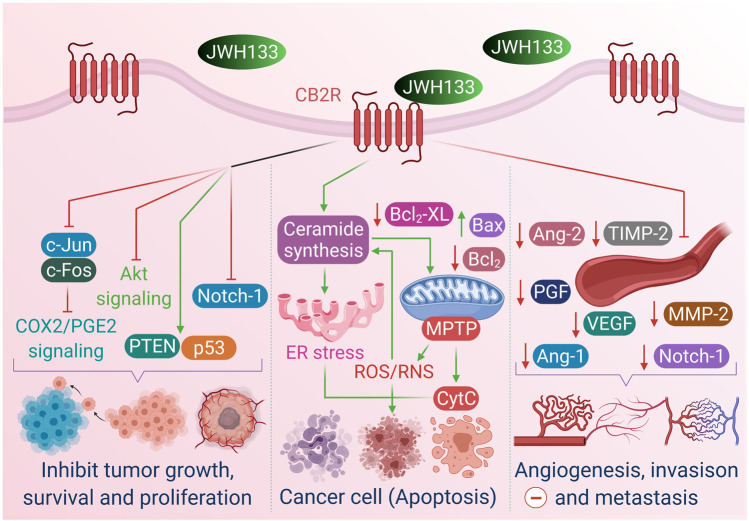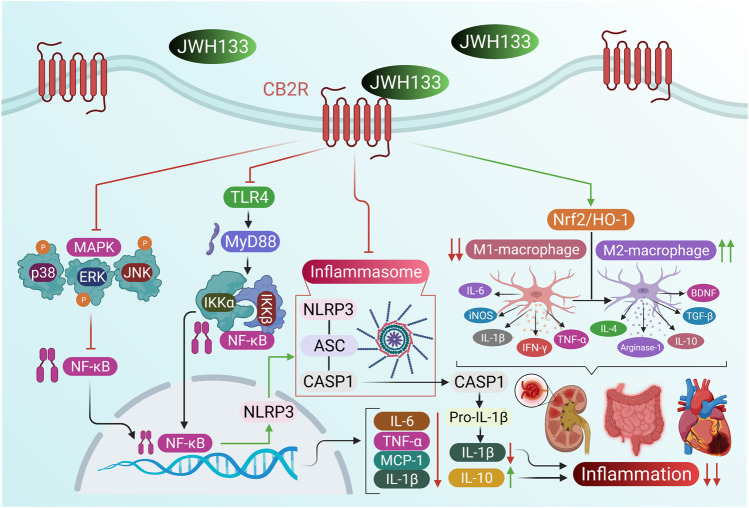CB2
2022-05-01: reference:
CB2 #
Gi/o, but it has been showin in human leukocytes that it can couple to Gαs.
-
Peripheral cannabinoid receptor, CB2, regulates bone mass
- The CB2–/– phenotype is also characterized by increased activity of trabecular Osteoblasts , increased osteoclast (the bone-resorbing cell) number, and a markedly decreased number of diaphyseal osteoblast precursors. CB2 is expressed in osteoblasts, osteocytes, and osteoclasts.
- *A CB2-specific agonist that does not have any psychotropic effects enhances endocortical osteoblast number and activity and restrains trabecular osteoclastogenesis, apparently by inhibiting proliferation of osteoclast precursors and receptor activator of NF-κB ligand expression in bone marrow-derived osteoblasts/stromal cells. **
-
Pharmacological Properties, Therapeutic Potential and Molecular Mechanisms of JWH133, a CB2 Receptor-Selective Agonist
-

-

- From brenden.henry:
- CB1 bad, therefore CBD owing to its unselectivity.
- I do see value in CB2 agonism: facilitates erections, improves endothelial function, improves metabolic syndrome, decreases inflammation, decreases ROS in corpus cavernosum, and stimulates mitotonic germ cells to differentiate which increases spermatogenesis but it does decrease number of A grade and increases number of B grade sperm with no change in lower grades and this is just a measure of their motility. Overactivation of CB2 does result in a decrease in sperm count however, as it seems to have an apoptotic effect on germ cells, but mating and fertility remain unimpaired, however it can impair embryonic dev so I wouldn’t use it prior to trying to start a family. CB2 activation does not decrease testosterone, and in fact can possibly increase testosterone due to all the above- Attached are some good block diagrams showing activated pathways…
- CB1 agonism increases inflammation partly through p38 Mapk which increases inflammatory cytokines , increases risk of atherosclerosis and endothelial dysfunction, inhibits testosterone production through effects on both pituitary and leydig cells, inhibits sperm motility, capacitation and acrosome reaction.
-